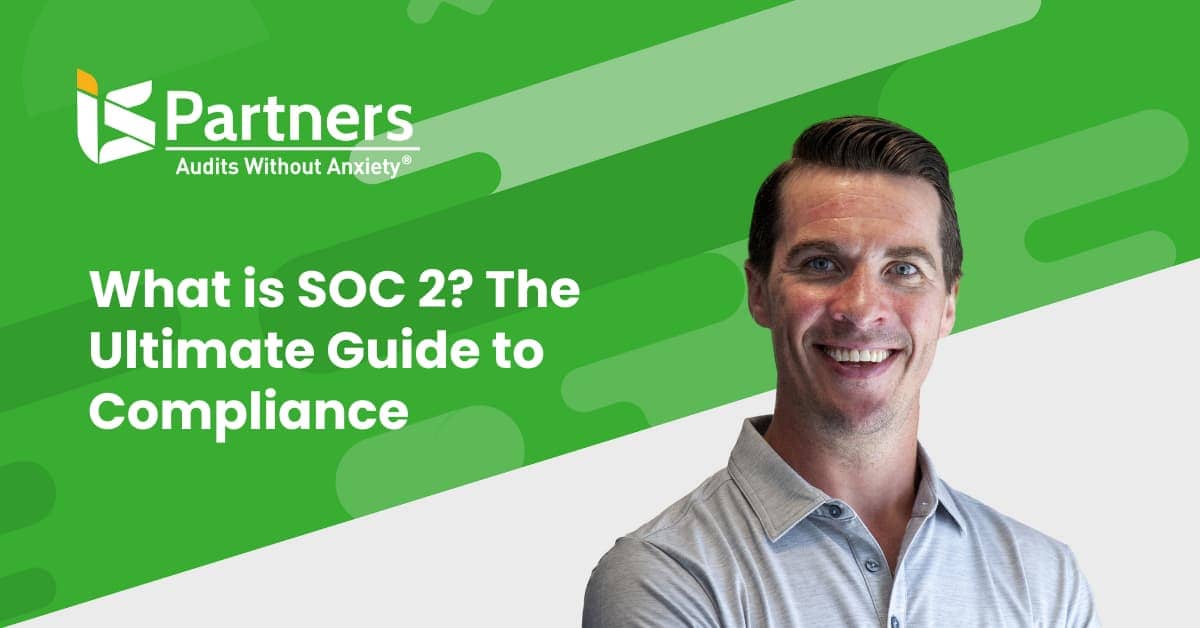Do Startups Need to Be SOC 2 Compliant?
In 2023, there has been a notable increase in the demand for companies to provide proof of SOC 2 compliance before doing business with enterprises. SOC 2 reports have become an essential requirement, with a 40% rise in overall SOC 2 adoption compared to previous years.
The reason behind this trend is that enterprises need assurance that their service providers have adequate controls in place to ensure the security, availability, and confidentiality of their data. With data breaches and leaks becoming common, B2B customers are more cautious and unwilling to partner with vendors that lack proper security certifications like SOC 2. As a result, more and more businesses are working towards becoming SOC 2 compliant to remain competitive and win enterprise contracts.
Completing a SOC 2 audit demonstrates a service provider’s commitment to security and due diligence. Given the rising stakes, achieving compliance has become crucial for vendors catering to enterprise clients. The surge in insistence on SOC 2 reports underlines their growing importance as a trust and risk management tool.
Fast Fact
SOC 2 adoption has risen 40% in 2023.
SOC 2 for Startups Costs Less
Getting SOC 2 compliant early on saves time, reduces problems, and helps startups grow. It’s cheaper to focus on this from the start, but constraints like budget and staffing often come in the way. The smart approach is for founders to plan for system security from the very beginning. This can be achieved by using guidance from compliance frameworks in creating secure systems, even without getting certified right away.
“SOC 2 compliance is the cheapest it will ever be when you’re a startup just getting off the ground! I know startups often struggle with limited resources and may not want to invest seriously in security. The truth is, though, that the cost of getting SOC 2 compliant is cheaper at the beginning.”
– Tyler DeArment, Business Development Associate at I.S. Partners
Building it right the first time saves time compared to fixing it later. If this isn’t possible, a startup should aim for a good security system as soon as they get their first clients. As the company and client base grow, it’s expected to have better security. As a startup gets more revenue and customer data, it becomes a bigger target, so better security is needed to avoid breaches. Any security issue could completely ruin a startup’s chances of success.
ADVANTAGES
Value of SOC 2 Compliance for Startups
Startups in today’s digital landscape face increasing security concerns and the need to establish trust with clients and investors. One effective way to address these challenges is by pursuing SOC 2 compliance. SOC 2 reports serve as a comprehensive measure of an organization’s security profile, demonstrating the effectiveness of its security controls. By obtaining SOC 2 certification, startups can establish credibility with clients and investors, develop strong policies and procedures, lower their risk profile, foster a security-first culture, build stakeholder confidence, streamline internal processes, save time, reduce disruptions, and contribute to business growth. In this highly competitive business environment, SOC 2 compliance proves to be a valuable asset for startups looking to thrive and succeed.
SOC 2 for startups builds trust with clients.
SOC 2 compliance is a pivotal factor in establishing credibility and trust for startups with both clients and investors. As startups seek growth and business expansion, it becomes crucial to demonstrate their commitment to robust security protocols to potential partners, who are often apprehensive about the risks associated with engaging third-party services.
Fast Fact
60% of B2B companies are more willing to work with startups that have a SOC 2.
Showing SOC 2 compliance attracts investors.
When investors consider backing a startup, having a SOC 2 report is significant. The SOC 2 audit process, which is done by a firm that knows a lot about information security, results in a report that shows the startup meets information security standards. This report can speed up the due diligence process for investors by giving them the confidence they need when they’re considering working with the startup.
Fast Fact
70% of venture capitalists prefer investing in SOC 2-compliant startups.
Regulatory compliance establishes strong policies and procedures.
As part of being SOC 2 compliant, startups need to have detailed rules and processes for how data is kept safe, who can access it, and how it is managed. For startups that handle sensitive data, SOC 2 requires them to have strong rules and technologies (like encryption) in place that cover how data is collected, used, kept, and thrown away. This makes it clear that being SOC 2 compliant is a big help for startups in creating and using strong rules and procedures. It also sets the groundwork for international standards like GDPR and ISO 27001.
SOC 2 compliance lowers the risk profile of the startup.
A startup needs to concentrate on company-wide risk management to comply with SOC 2, examining its data systems and processes thoroughly to pinpoint potential weaknesses.his process of checking risks helps everyone in the startup to become aware of what the risks could be and how to fix them. Making risk-checking a regular part of the startup’s work can lower the risk for the whole company. So, while getting SOC 2 compliant might take some effort, it comes with the big benefit of making the startup safer and lowering its risk overall.
Compliance is the foundation of a ‘security-first’ culture.
Startups that focus on SOC 2 compliance from the start can build a culture where security is given top priority. This means that every choice made in every department takes safety and trust into account. For example, when the coding teams think about security as they create, they make products that are safer right from the beginning and avoid trouble later.
By giving the right training, the startup also builds trust among the team members and keeps everyone on the lookout for potential security risks. This security-conscious culture helps startups to avoid spending time and money cleaning up mistakes.
SOC 2 compliance prepares startups for growth.
By adopting a proactive approach to risk management in the process of achieving compliance, startups also prevent costly and time-consuming fixes in the future and prepare it for scaling operations. The audit process also improves communication and operations between departments, paving the way for efficient expansion.
SOC 2 for startups is a powerful marketing tool.
SOC 2 compliance can be a powerful marketing tool for startups to build trust and credibility. By prominently featuring SOC 2 compliance credentials on their website, sales materials, and customer communications, startups signal a strong commitment to security right out of the gate. They should highlight how how specific SOC 2 controls protect customer data and minimize risks. By including compliance status in messaging around transparency, new businesses can differentiate themselves when selling to security-conscious enterprises.
SOC 2 Compliance for Startups: Types that Benefit the Most
Startups that benefit the most from SOC 2 compliance are those that are entering the growth stage or beyond. If a startup has plans for significant expansion, SOC 2 should be a top priority. The industry in which the startup operates also plays a role, particularly in sectors such as healthcare, finance, pharmaceuticals, and technology, where data breaches are a significant concern. Compliance is crucial for startups offering e-commerce services or working with big data, as clients and customers are likely to request a SOC 2 compliance report. Regardless of whether the startup operates in a B2B or B2C model, compliance is essential for maintaining trust and attracting clients and customers.
How Startups Should Approach SOC 2
Preparing for a SOC 2 audit is a critical milestone for startups seeking to demonstrate their commitment to data security and compliance. To ensure a successful audit, startups should follow key steps and best practices. This includes updating administrative security policies, implementing technical security controls aligned with the AICPA Trust Service Criteria (TSC), gathering relevant security evidence, establishing clear policies, designating control owners, and considering an internal audit. By taking these proactive measures, startups can position themselves for a smooth and successful SOC 2 audit, reinforcing their commitment to maintaining robust security practices and meeting industry standards.
- Ensure administrative security policies are up-to-date and written in plain language, outlining standard security processes.
- Implement technical security controls aligned with the AICPA Trust Service Criteria (TSC) categories, such as network firewalls, encryption, and access controls.
- Gather security and SOC 2 control evidence, including documentation of cloud security, access controls, encryption, backups, logs, and vendor agreements.
- Establish clear, documented policies for data handling, incident response, system/data access, disaster recovery, and security training.
- Designate control owners and responsibilities to ensure accountability and mitigate security risks.
- Consider conducting an internal audit to identify any gaps or areas for improvement before the official audit.
Benefits of Third-Party Auditors and SOC 2 Compliance for Startups
Working with third-party auditors allows a company to improve its security posture. The process of performing the audit will help identify security controls that may not currently be in place and incorporate their implementation on the company’s security roadmap. Auditors give the company a different perspective of how a control occurs and how to strengthen it internally. Additionally, working with a third party will help deter any issues with internal fraud or collusion that might occur.
Maintaining SOC 2 Compliance for Startups
Maintaining SOC 2 compliance requires ongoing efforts to ensure the effectiveness of security controls. To maintain a SOC 2 Type 2 Report, startups must demonstrate continuous validation and provide evidence that security controls are consistently implemented. This entails managing user access, performing regular backups, encrypting data, and other relevant security measures. It is important to note that SOC 2 reports typically cover a 12-month period, indicating the need for annual SOC 2 audits to maintain a current report and uphold compliance. By regularly assessing and validating security controls, startups can ensure the sustained security and trustworthiness of their operations.
CASE STUDY
Startup Achieves SOC 2 Compliance, Guided by I.S. Partners Auditors
To I.S. Partners, security means protecting all confidential data without sacrificing the performance given to a client. I.S. Partners’ Senior Auditor John Zuk and SOC Manager Joe Ciancimino sat down with MK’s Marketing team to teach us about the importance of security and compliance.
As an up-and-coming FinTech, MK Decision (MK) entered the industry ready to strengthen local economies with the help of our technology. When studying the obstacles community financial institutions face with online financial services, it was abundantly clear that cybersecurity was one of the biggest barriers preventing these financial institutions (FI) from going digital. Community FIs are hesitant about switching their processes from paper due to the risk of a data breach. According to Varonis, “the average cost of a financial services data breach is $5.85 million” (2021 Data Risk Report Financial Services, 2021). While keeping processes on paper might seem like a good idea, FIs still pose a major security risk for improper file storage and employee access permissions. In a 2019 report, Varonis found that, “17% of all sensitive files are accessible to all employees” (2019 Varonis Global Data Risk Report, 2019). Paper-based FIs could fall short of compliance standards while continuing to lose their clientele to competing FIs with online financial services.
To solve this problem, MK built our digital account opening and loan origination platform to ensure security for our customers and end-users. By incorporating regular audits as a business practice, MK is helping FIs secure their data, guarantee compliance, and compete in the marketplace against megabanks. Recently, MK successfully completed a SOC 2 Type 1 compliance audit with the help of I.S. Partners.
IMPLICATIONS
Importance of Security & Compliance for Startups
Working with clients within the FinTech industry has allowed us to tackle the challenge of helping our clients identify and mitigate risks related to new emerging financial technologies.
With the emergence of new technologies in the financial sector, regulatory risk and risk to consumer data is at an all-time high. Ensuring adequate cybersecurity controls are in place to mitigate these risks will allow community financial institutions to benefit from the technology. In addition, as regulators continue to increase their focus on vendor and third-party risk management, compliance and third-party attestation reports help ensure that controls are in place to mitigate the risks to consumer data.
SOC auditing will become more important in the future since an enormous amount of financial data is calculated through algorithms, and financial information will need to be audited. We continue to see an increase in demand of third-party attestation and assurance reports, with more companies requiring defined security controls and third-party assurance reports in their contractual requirements.
Through compliance with the SOC 2 Type 1 attestation standards, MK reinforces to our customers and industry at large the seriousness of cybersecurity and compliance. With the help of I.S. Partners, MK is strengthening our internal processes and ensuring that our customers’ data is always protected. As the FinTech landscape continues to change, MK’s commitment to security stands unwavering. Through the introduction of new security measures, testing, and company policies, the MK team’s focus is on the reputation of our security posture and our customers’ continued success.
GET STARTED
SOC 2 Compliance for Startups
I.S. Partners supports a variety of clients in different industries, including healthcare, financial services, utilities and energy companies, businesses in the telecommunications industry, insurance, software development, FinTech, technology services, banking, and utility services among others. Use the form below to get started on your SOC 2 compliance journey.
Read More Client Testimonials
See more of what our clients have to say about their experience working with I.S. Partners’ auditors.
>> Testimonials
SOC 1®, SOC 2® and SOC 3® are registered trademarks of the AICPA (American Institute of Certified Public Accountants). The AICPA® Trust Services Criteria for Security, Availability, Processing Integrity, Confidentiality, and Privacy is copyrighted by the Association of International Certified Professional Accountants. All rights reserved.




